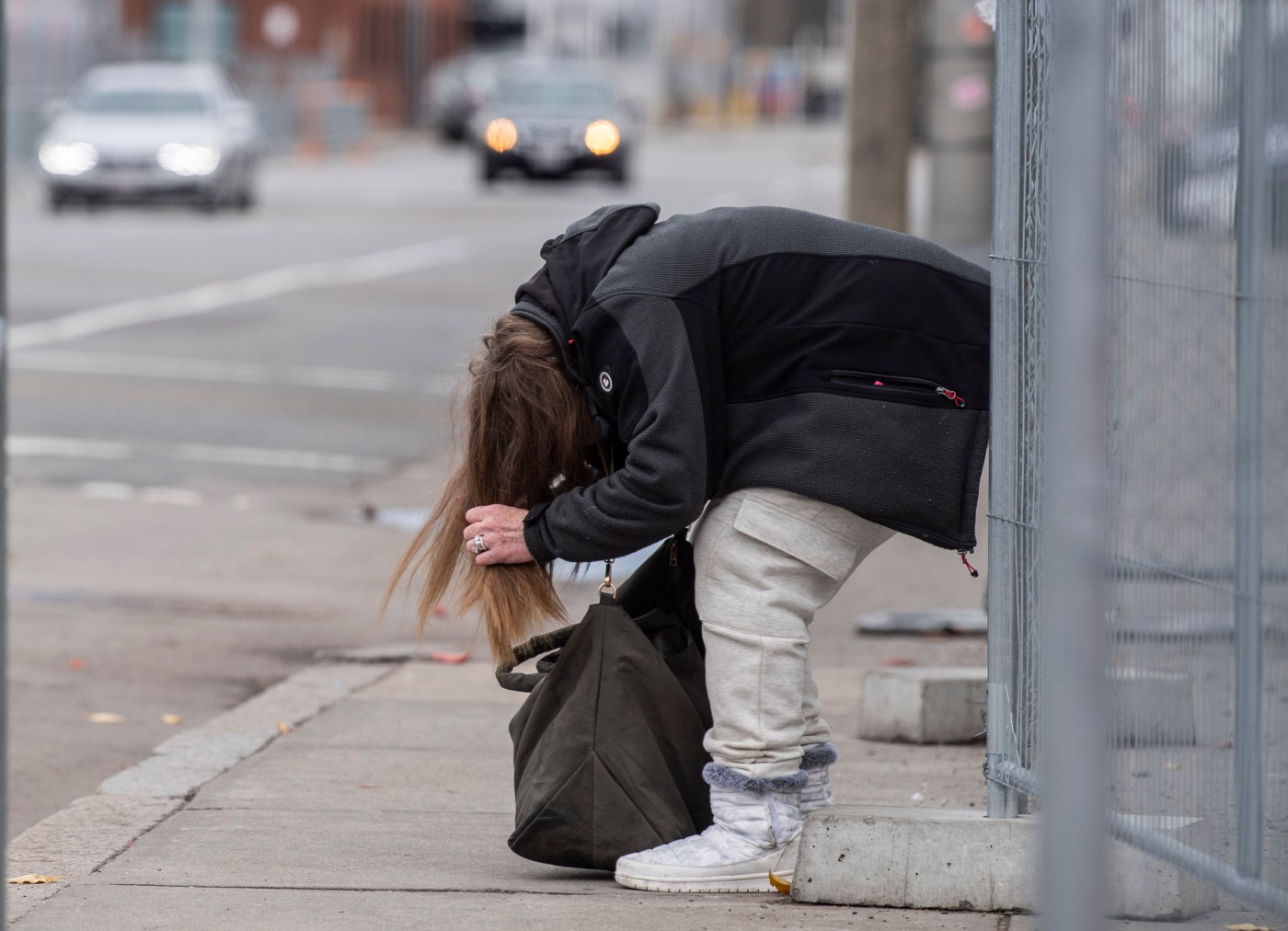
Boston lowers security at Mass and Cass, but Mayor Wu refrains from ‘declaring victory’
The City of Boston has lowered its private security presence in the Mass and Cass zone, citing statistics that show fewer squatters in the drug-infested area.
The Boston Public Health Commission’s contract with Ware Security Consultants ended on Jan. 15, roughly two-and-a-half months after the city began enforcing a mayoral ordinance that banned encampments, cracked down on crime, and tasked outreach workers with connecting homeless individuals with alternative shelter.
“No one is declaring victory on the opiate crisis or homelessness or mental health,” Mayor Michelle Wu said Wednesday on a Java with Jimmy podcast. “We know part of this is the winter.”
Wu touted her administration’s efforts on clearing out the troubled area, however, stating that dozens of people and encampments were still seen on Atkinson Street last winter, when her plan, implemented this past Nov. 1, was not in place.
Ware Security was paid more than $3.07 million during the course of that agreement, which started on Nov. 10, 2021 and was amended last July, when the contract was increased by more than $1 million and extended through Dec. 31.
The extension occurred around the same time the mayor noted that the area had reached a “new level of public safety alarm,” leading outreach workers to pull their teams out due to the enhanced danger. At that time, roughly 200 people were seen there each day, engaging in drug and human trafficking and committing violence.
Ware was tasked with providing armed security, with at least six security guards from the 8 a.m. to 4 p.m. and 4 p.m. to midnight shifts, and eight officers overnight from midnight to 8 a.m. The contract, which included services at the men’s shelter at 112 Southampton St., was extended again to, and ended on Jan. 15.
Michael Ware, the firm’s owner, confirmed that his company was looking for other projects.
“The Boston Police Department maintains a presence on Atkinson Street and in the surrounding area,” a Boston Public Health Commission spokesperson said in a statement, adding that campus security operated by the BPHC ensures security of all city-owned properties and the parking lot.
Related Articles
Boston City Hall highlights Black art, culture to kick off Black History Month
South Boston not getting urgent care clinic on West Broadway after applicant backs out
Boston Mayor Wu extends fare-free bus pilot for two years at $8.4M
Closed Roxbury Walgreens not ‘currently’ targeted for migrant overflow site, state says
Outdoor dining applications open up in Boston; North End to face same restrictions as last year
BPHC is continuing to contract with New England Security around some of its shelters and other programmatic sites, the spokesperson said, but the cost of those services were not provided prior to the Herald’s deadline.
When asked why security was decreased in the Mass and Cass zone, the BPHC pointed to the Mass/Cass dashboard, which shows that “the average daily count of people in the area has decreased significantly.”
“Through successful coordination with several city departments, police and community partners, we have been able to address public safety concerns on Atkinson Street,” the BPHC spokesperson, Pai En Yu, said.
City Councilor Ed Flynn said, however, that he remains concerned about the drug activity taking place there, and called for more of a police presence, which has waned in the months since the encampment ban was implemented.
Flynn said he held separate meetings this week with residents of the nearby Mary Ellen McCormack public housing task force and Andrew Square, where quality of life issues including drug activity were discussed.
“I still see a lot of drug activity taking place in and around Mass and Cass and at Andrew Square,” Flynn told the Herald. “I’m concerned about it.”


